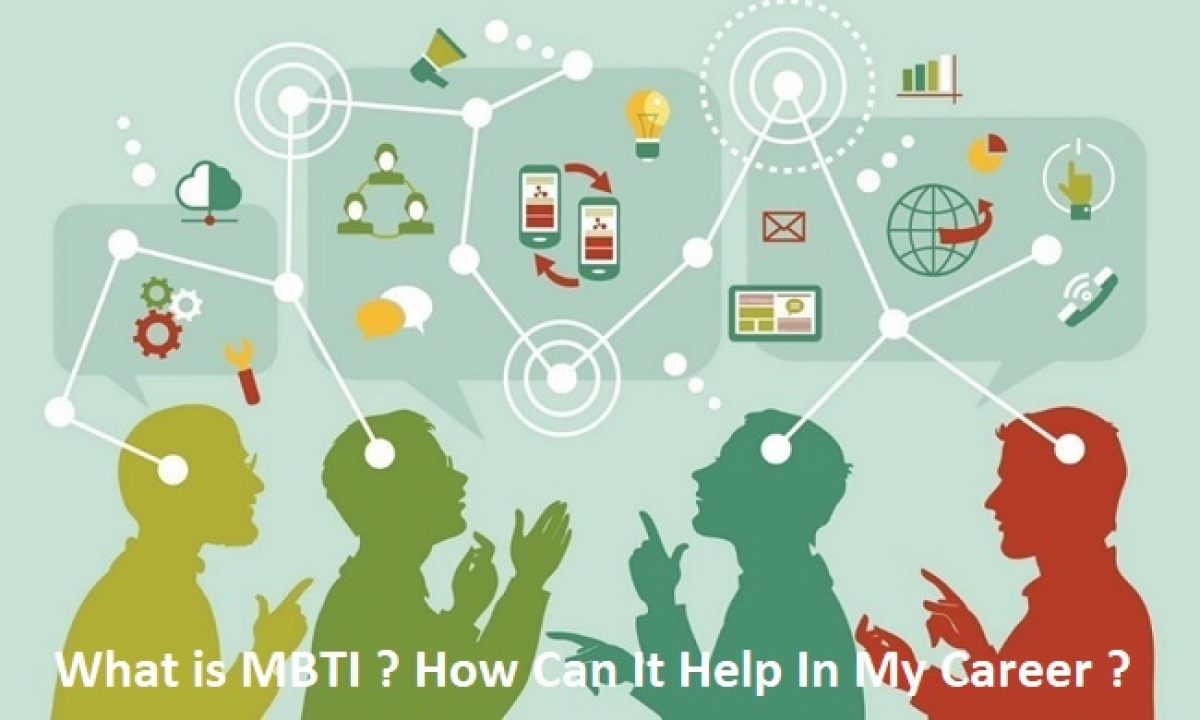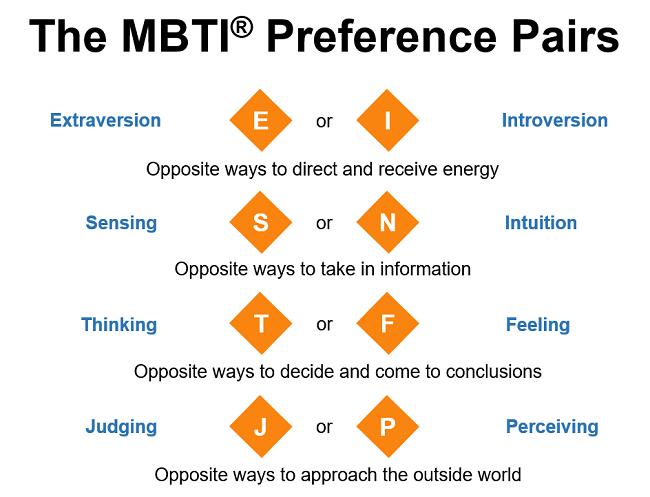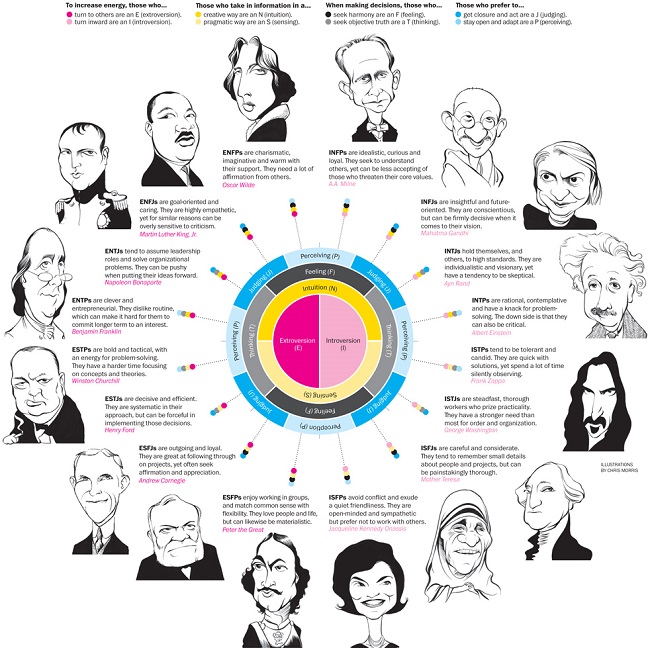What is MBTI
April 04, 2023

In CTES, we often kick-start our career preparation and search services with expert-led Character Discovery sessions. Why is this important as a first step? Self exploration is crucial as it gives us better insight to our interests, aptitudes, and work-related values. This knowledge can help us make suitable choices in terms of what career to embark on, what work environments we are likely to thrive in, our work management style and much more.
Read to find out more about the importance of Character Discovery for your career through the use of MBTI® Assessment tools.
What is Myers-Briggs Type Indicator® (MBTI®) Assessment?
One of the main tools that we use in our Character Discovery sessions is the Myers-Briggs Type Indicator® (MBTI®) Assessment. The first MBTI® Assessment was developed in 1943, with improved versions being continually developed over the years from rigorous research (The Myers-Briggs Company, 2022). It has been used worldwide and cross-culturally by organisational development professionals, career coaches, consultants and educators (The Myers-Briggs Company, 2022). The test aims to help its users better understand their own behavioural patterns, in hopes that this information will help them to grow in the way they communicate, learn and work.
MBTI® consists of four main personality preference pairs (The Myers-Briggs Company, 2022):
- Extraversion – Introversion (E–I ): Do you prefer to get energy from the external world and people (E) or your own internal world and thoughts (I)?
- Sensing – Intuition (S–N): Do you prefer to take in information based on what is concrete and realistic (S) or information that is based on connections, ideas and possibilities (N)?
- Thinking – Feeling (T–F): Do you prefer to make decisions using logic (T) or based on how it aligns with your values and impacts others (F)?
- Judging – Perceiving (J–P): Do you prefer things to approach things in a structured and orderly manner (J) or spontaneously with open options (P)?

Each of these four personality preferences occur on a continuum, where a person may lean more towards one over the other. Each individual may have a different preference, leading to 16 possible combinations of personality types. To gain a better idea of each personality preference, here are some examples of historical figures and their MBTI® personality types.

Source: The Washington Post (2012)
If you have had experience with MBTI® in the past, feel free to leave your comments below, share your thoughts about it and how it has helped you in your career.
References:
Each of these four personality preferences occur on a continuum, where a person may lean more towards one over the other. Each individual may have a different preference, leading to 16 possible combinations of personality types. To gain a better idea of each personality preference, here are some examples of historical figures and their MBTI® personality types.

Source: The Washington Post (2012)
How MBTI® Can Be Applied in Your Career
While the results of an MBTI® assessment can be applied to varying life aspects, they are often used for career guidance. These are some examples of how MBTI® results can be applied in your career.
- Career Planning and Transition
MBTI® can help you decide on what career choices will best suit you, how you can develop in your career and how you can improve in your management style. For example, if you are someone who leans towards ‘extraversion’, you may thrive in a work environment that is highly social.
- Conflict Management
MBTI® can help you gain greater awareness of the way you navigate interpersonal relationships. This can help you to identify your common sources of conflict and how you can effectively navigate them to prevent underperformance, disruption and engagement.
- Stress Management
MBTI® can help you to identify your stress triggers so that you can better manage them, build resilience and increase your productivity. For example, if you are someone who leans towards ‘judging’ and are facing stress at work, it could be because of a work environment that is too unstructured and unpredictable.
- Leadership Development
Gaining a better understanding of your personality preferences through MBTI® can also inform you of your leadership style. This can potentially help you to improve in the way you lead your team and communicate with them.
- Team Development
Aside from individual benefits, MBTI® results can also help team members to be more effective in communicating with one another. It can also help to identify team and individual strengths and weaknesses, so that action plans can be created for improved performance.
Official MBTI® Assessments are evidence-based and administered by certified MBTI® practitioners. While some online sites like 16personalities do offer useful insight, they are not guaranteed to be valid or reliable. Furthermore, MBTI® practitioners are also trained in walking you through comprehensive personalised reports that are generated from the official assessment. They will also guide you through the reflection process and how you can apply this new knowledge in your career decisions and work interactions.
If you have had experience with MBTI® in the past, feel free to leave your comments below, share your thoughts about it and how it has helped you in your career.
If you are interested in engaging CTES to find out about your personality preferences and how it can propel you in your professional development, you may visit this page for more information https://ctes.com.sg/web/site/training.
References:
The Myers-Briggs Company. (2022). MBTI® Facts. Retrieved from The Myers-Brig Company:
https://www.themyersbriggs.com/en-US/Support/MBTI-Facts
https://www.themyersbriggs.com/en-US/Support/MBTI-Facts
The Washington Post. (2012, December 13). Does it pay to know your type? Retrieved from The Washington Post
https://www.washingtonpost.com/business/does-it-pay-to-know-your-type/2012/12/13/a12c9e90-4589-11e2-9648-a2c323a991d6_graphic.html
https://www.washingtonpost.com/business/does-it-pay-to-know-your-type/2012/12/13/a12c9e90-4589-11e2-9648-a2c323a991d6_graphic.html
Topic(s): Career Advice
Showing Empathy At The Workplace
CTES Career Preparation Programme



